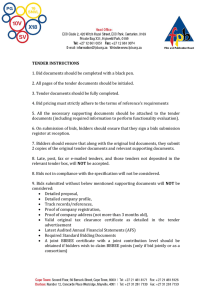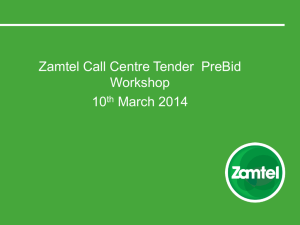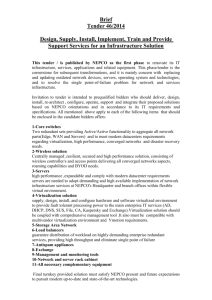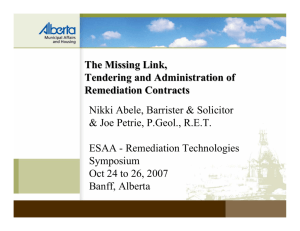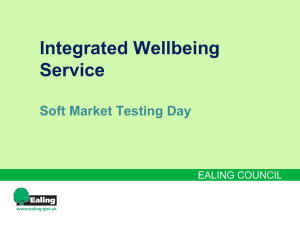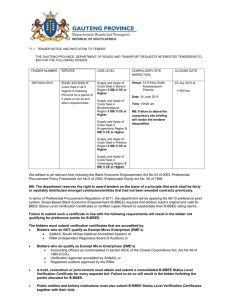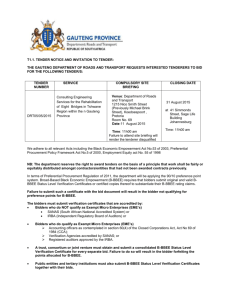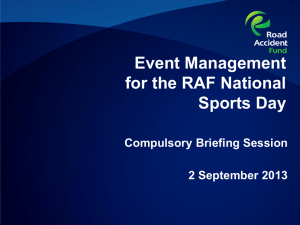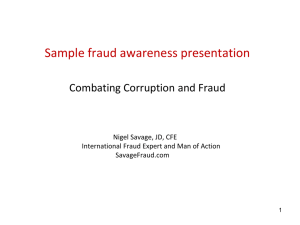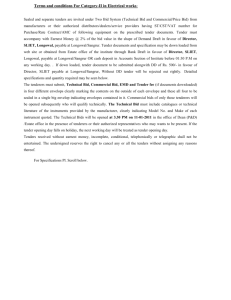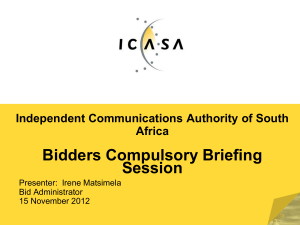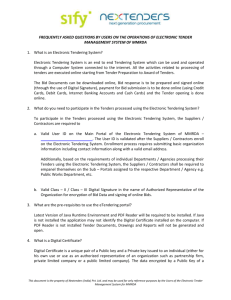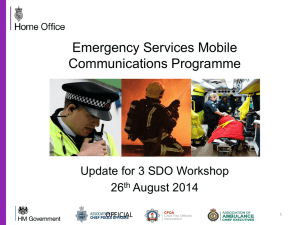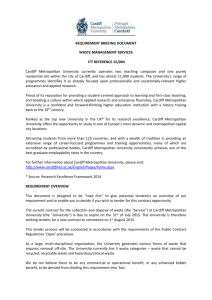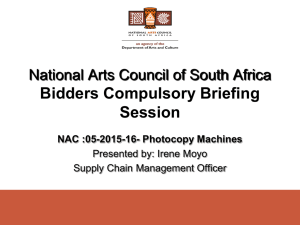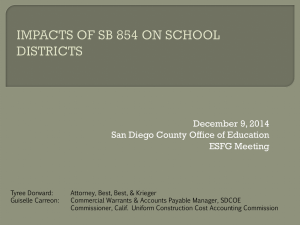Category Analysis: Social Care
advertisement
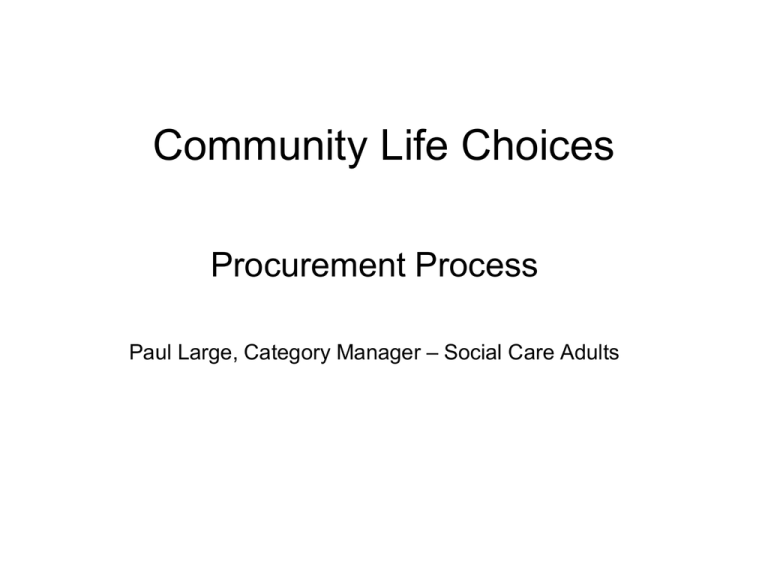
Community Life Choices Procurement Process Paul Large, Category Manager – Social Care Adults Overview • • • • • Aim Timetable Tender process Summary Questions? Aim • To move from block-contracted day services to service user-selected services • To enable service users to select services from providers on a framework agreement for community life choices • To provide service users with access to a wide range of services and providers • To enable service users to select services that will best meet their needs & achieve the outcomes they are seeking • To provide opportunities for a broad range of providers – large, small and micros • This is a first step! Timetable • • • • • • Jan/Feb – Consultation Feb/Mar – Tender documents finalised Early Apr - Tender advertised End of May – Bids received June – Evaluation & Award Oct – Framework ‘live’ Tender Process - documents • Invitation to Tender – describes the process • Pre Qualification Questionnaire / Application Form – minimum requirements • Form of Tender – the bid (£) • Method Statements – descriptive part of the bid • Terms and Conditions of Contract (‘the contract’) • Specification (s) Pre-Qualification Minimum requirements: Sound financial standing ‘Credit safe’ check &/or analysis of accounts No prosecutions e.g., fraud, theft, disqualification as company director Insurance cover & levels of cover (£) – Public Liability, Employers Liability Quality of services and the organisation Quality Assurance systems or processes Quality & capability of staff - CRB checks, relevant skill set, qualifications, experience Capacity to provide the specified service(s) & levels of service evidence of how, where and to whom the organisation has provided such services (examples of comparable contracts or provision) and references Compliance with legislation & Council policy incl. equalities, sustainability, safeguarding, business continuity/disaster recovery Form of Tender • Your bid price – possibly an hourly rate or sessional charge • A breakdown of the cost of providing your services to back up the bid price • Declarations as to the veracity of your bid e.g., non-collusion • Agreement to publish the successful bid(s) (redacted copy) Method Statements • A set of questions to illicit from bidders how they will provide the specified service(s) to the highest possible standard • Method statements may ask about: • Staffing levels and responsibilities, management structure and roles, managing challenges, implementation and exit planning, • Method statements may also ask service-specific questions, about TUPE transfers, service planning and review • Bidders may be asked to demonstrate what new approaches they can bring to service delivery to support s/users to achieve their outcomes Evaluation • Selection criteria (short-listing) – The minimum requirements stated in the tender & assessed via responses to the PQQ / Application Form – May be based on a minimum score or ‘Pass/Fail’ - or both • Award criteria (basis for award) – Made explicit in the Invitation to Tender (ITT) – e.g. 40% price (bid £) / 60 % quality (responses to method statements) • Evaluation methodology will be made explicit in the ITT incl: – the marking scheme and the weighting of marks for each element – e.g., some method statements may carry more ’weight’ (more marks) than others or require bidders to achieve a minimum score Evaluation • Bidders may be called for interview • Performance at interview may be used to moderate scores achieved at the written stage • E.g., a low score for a written response may be moderated upwards – or downwards – based on the response to the same or a comparable question on the same topic Award • Both unsuccessful and successful bidders informed • Unsuccessful bidders given a brief summary of the main strengths & weaknesses of their bid and their evaluation score (price + quality) • Unsuccessful bidders may seek further feedback Summary • Block contracts are ending • Service users will choose from whom they buy services and what those services are (Personalisation) • When a service user opts for the Council to manage its Personal budget, the Council may select the services they need from providers on a framework agreement • Entry to the framework will be based on the quality and price of a provider’s services Questions? paul.large@leics.gov.uk
